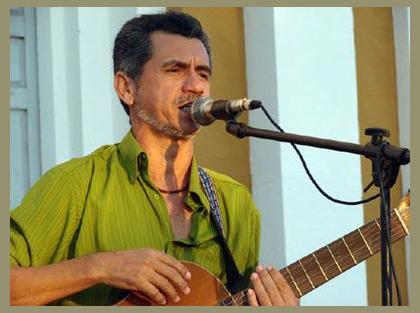 Zé Vicente
Zé Vicente
Zé Vicente: A Voice for Peace and Social Justice
Amidst the tumultuous political and social landscape of 1970s Portugal, a musical beacon emerged in the form of Zé Vicente. Driven by a profound commitment to peace and social equality, Vicente's music resonated with the aspirations of a nation yearning for a brighter future.
Early Influences and Activism
Born José Vicente in 1946 into a humble family in the Algarve region, Vicente's formative years were marked by the oppressive regime of António de Oliveira Salazar. From a young age, he witnessed firsthand the hardships and injustices faced by the Portuguese people. Inspired by the folk traditions of his homeland and the protest songs of Bob Dylan and Joan Baez, Vicente found his voice as a troubadour for the voiceless.
Musical Breakthrough and "Quando o Dia da Paz Renascer"
Vicente's debut album, "Zé Vicente" (1971), was an instant critical and commercial success. Its title track, "Quando o Dia da Paz Renascer" ("When the Day of Peace Dawns"), became an anthem for the growing peace movement in Portugal. The song's evocative lyrics and poignant melody struck a chord with audiences longing for an end to the bloodshed and conflict that had plagued the country for decades.
Challenges and Controversies
Vicente's music often courted controversy. His outspoken criticism of the government and its policies drew the ire of the authorities, resulting in his concerts being banned and his records censored. Undeterred, Vicente continued to use his platform to challenge the status quo and advocate for a more just and equitable society.
Discography
Over the course of his illustrious career, Zé Vicente released a prolific body of work, spanning over a dozen studio albums and numerous live recordings. His discography includes such notable releases as:
* "Zé Vicente" (1971)
* "O Canto da Terra" (1974)
* "Os Dias Felizes" (1976)
* "O Tempo da Paz" (1980)
* "Crónicas da Terra" (1986)
Members
Throughout his career, Zé Vicente collaborated with a diverse group of musicians, including:
* Arminda Neves (vocals)
* José Afonso (guitar)
* Luís Cília (bass)
* Carlos Zíngaro (drums)
* Jaime Alem (flute)
Legacy
Zé Vicente's music left an indelible mark on Portuguese culture and society. His songs became symbols of hope and resistance during the darkest days of the Salazar dictatorship. His commitment to peace and social justice inspired generations of artists and activists to continue the struggle for a more equitable world.
Today, Zé Vicente's music remains a testament to the transformative power of art and its ability to inspire change. His legacy as a voice for the oppressed and a tireless advocate for peace endures long after his passing.
Amidst the tumultuous political and social landscape of 1970s Portugal, a musical beacon emerged in the form of Zé Vicente. Driven by a profound commitment to peace and social equality, Vicente's music resonated with the aspirations of a nation yearning for a brighter future.
Early Influences and Activism
Born José Vicente in 1946 into a humble family in the Algarve region, Vicente's formative years were marked by the oppressive regime of António de Oliveira Salazar. From a young age, he witnessed firsthand the hardships and injustices faced by the Portuguese people. Inspired by the folk traditions of his homeland and the protest songs of Bob Dylan and Joan Baez, Vicente found his voice as a troubadour for the voiceless.
Musical Breakthrough and "Quando o Dia da Paz Renascer"
Vicente's debut album, "Zé Vicente" (1971), was an instant critical and commercial success. Its title track, "Quando o Dia da Paz Renascer" ("When the Day of Peace Dawns"), became an anthem for the growing peace movement in Portugal. The song's evocative lyrics and poignant melody struck a chord with audiences longing for an end to the bloodshed and conflict that had plagued the country for decades.
Challenges and Controversies
Vicente's music often courted controversy. His outspoken criticism of the government and its policies drew the ire of the authorities, resulting in his concerts being banned and his records censored. Undeterred, Vicente continued to use his platform to challenge the status quo and advocate for a more just and equitable society.
Discography
Over the course of his illustrious career, Zé Vicente released a prolific body of work, spanning over a dozen studio albums and numerous live recordings. His discography includes such notable releases as:
* "Zé Vicente" (1971)
* "O Canto da Terra" (1974)
* "Os Dias Felizes" (1976)
* "O Tempo da Paz" (1980)
* "Crónicas da Terra" (1986)
Members
Throughout his career, Zé Vicente collaborated with a diverse group of musicians, including:
* Arminda Neves (vocals)
* José Afonso (guitar)
* Luís Cília (bass)
* Carlos Zíngaro (drums)
* Jaime Alem (flute)
Legacy
Zé Vicente's music left an indelible mark on Portuguese culture and society. His songs became symbols of hope and resistance during the darkest days of the Salazar dictatorship. His commitment to peace and social justice inspired generations of artists and activists to continue the struggle for a more equitable world.
Today, Zé Vicente's music remains a testament to the transformative power of art and its ability to inspire change. His legacy as a voice for the oppressed and a tireless advocate for peace endures long after his passing.